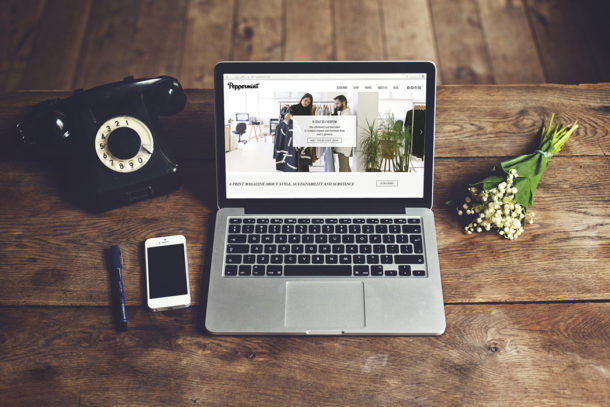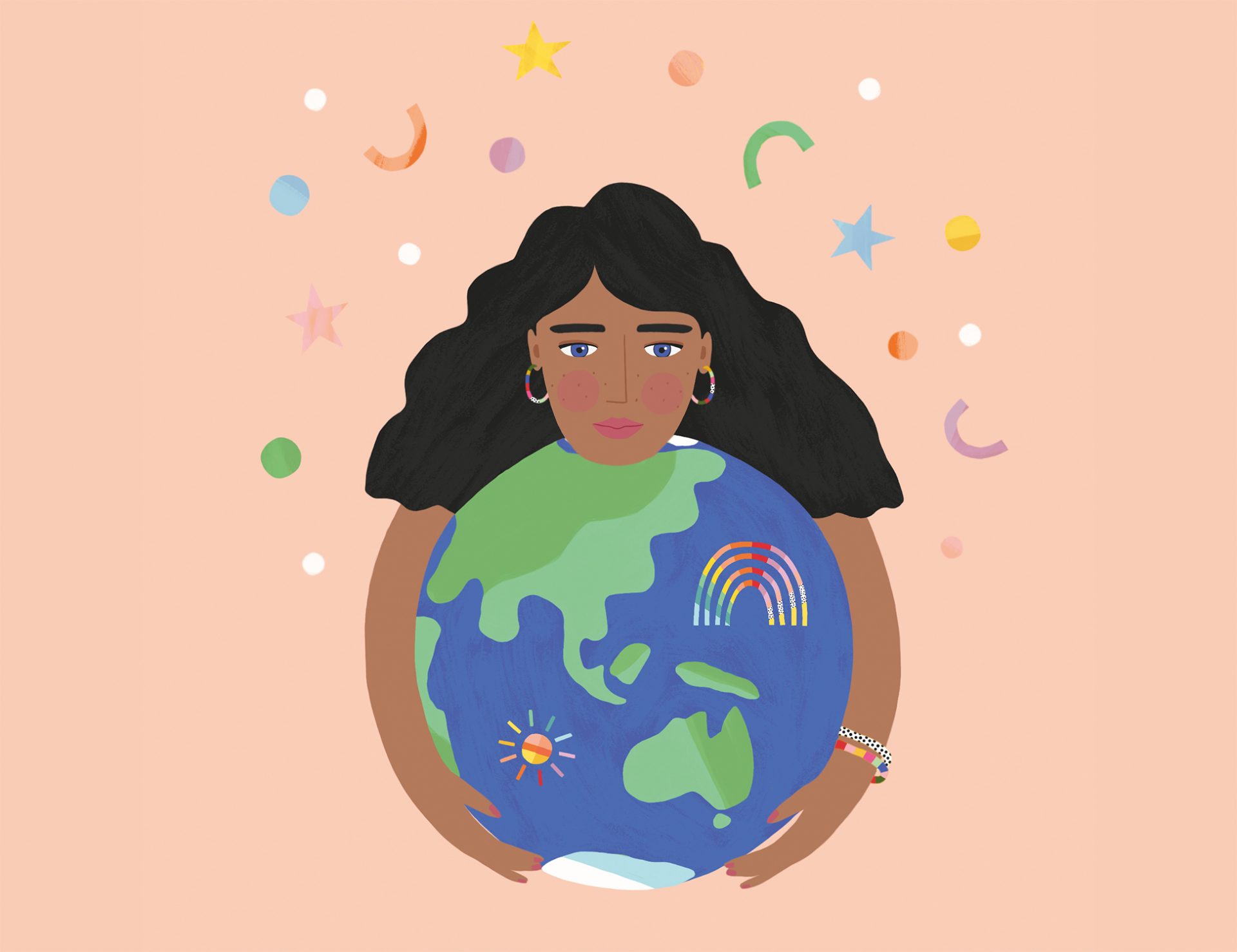
How Can We Build a Better World?
Life as we know it has been turned upside down and inside out – it’s enough to leave you feeling discombobulated. While it’s true that our lives may never be the same again, there’s also never been a more perfect time to press reset; to create and shape a brave new world.
Rocking us from our comfort zones, the pandemic has been a catalyst for us to come together in ways we might not have thought possible. We’ve each had an opportunity to test our mettle and rediscover what’s truly important: family, community, environment, self-care. At the same time, this emergency has exposed inequalities and injustices we might not have been cognisant of before. And yet, the power we have to make things better is as pertinent as ever, and is in our hands.
So as our world starts to emerge from the haze of overwhelm, now is the time to hit the reset button. While there are no ‘right answers’ on how or when to move forward, we’ve come up with five ideas for building a better life – and a better world.
……….
Consume less
If there’s one thing this crisis has taught us, it’s how resourceful we humans can be. If you’ve been fortunate enough to have everything you need to get by, you’re probably feeling a renewed sense of appreciation for the small things – like fresh vegetables, clean bed sheets and nice-smelling shampoo.
On the other hand, there’s nothing like watching people brawl over toilet paper to make you realise we’ve lost our way. Frivolous spending, crowding our lives with ‘stuff’ we don’t really need and looking to material goods for fulfilment has a real impact on our society – not to mention our wallets – and it’s often at the expense of our environment. We’ve been given an opportunity to slow down; to shift how we live, what we buy and even how we create waste – from single-use plastics to disposable fashion.
Now is a great time to reign in your spending and break the cycle of over-consumption. Before you revert to old habits, reflect on how much you truly needed to make it through this crisis – and how quickly any deficits were filled by family or friends (a cup of sugar here, a hand-me-down there). Going forward, it’s time to reuse, buy pre-loved and get creative with what you already have.
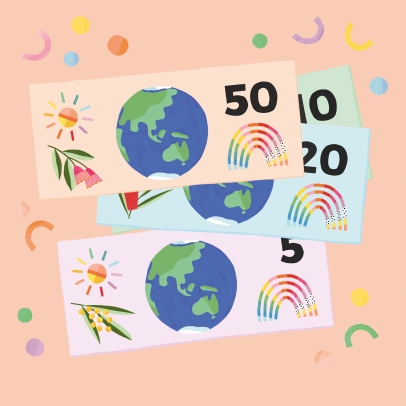

……….
Become more self-sufficient
This crisis has laid bare the inner workings of the supply chains that feed and clothe us – and it’s shown us how precarious they can be. For the first time ever, many of us have been forced to contemplate where the spinach on our dinner plates actually comes from, and what we would do if one day it disappeared from the supermarket shelves altogether.
Our appetite for wholesome foods to fill our bellies and nourish our bodies has never been greater. And now, the green shoots of self-reliance are starting to sprout as well. On a global scale, countries are moving towards greater self-sufficiency by decentralising the food supply chain. The shift towards seasonal eating and local produce is accelerating.
On a personal level, there are things we can all do to become more self-reliant. Plant a herb garden. Learn to preserve and ferment. Set up a chicken coop in your backyard. Get your neighbours on board for a produce swap, or start supporting your local farmers’ market. These are all small actions that can add up to a more sustainable food system.
……….
Use your money for good
From children donating their pocket money to families in need, to veterans raising millions for healthcare workers, we’ve witnessed some incredibly generous gestures over the past few months. It’s never been clearer that when it comes to our personal finances, we all hold the power to vote with our wallets for the kind of world we want to live in.
While you’re reassessing your financial situation, consider the importance of mutual prosperity over the accumulation of wealth at the expense of other people and the planet. There’s a handful of banking and financial institutions that work hard to make a positive impact. So if you’ve ever contemplated switching to a more ethical bank, now could be the perfect time.
Look for an institution with a robust Responsible Banking Policy to ensure your hard-earned cash is being used for good. Instead of loaning to the fossil fuel, nuclear power, gambling and tobacco industries, Bank Australia invests in renewable energy, non-profits and community housing – things that help build a better, more inclusive and resilient world for everyone.
Through its Impact Fund, Bank Australia reinvests four percent of its annual profits into community grants that address climate change, refugee rights and reconciliation. When you open an account, you automatically buy into a 927-hectare Conservation Reserve in Victoria, helping to protect almost 500 species of native flora and fauna. Changing to an ethical bank, such as Bank Australia, is one of the easiest ways to ensure your money has a positive impact on society and our planet.
……….
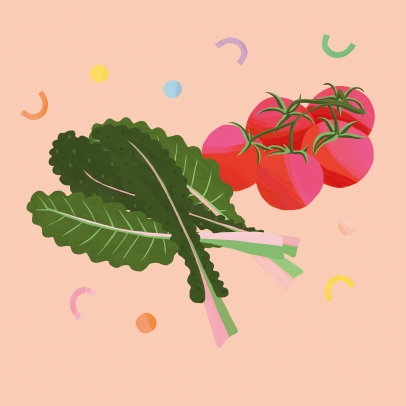
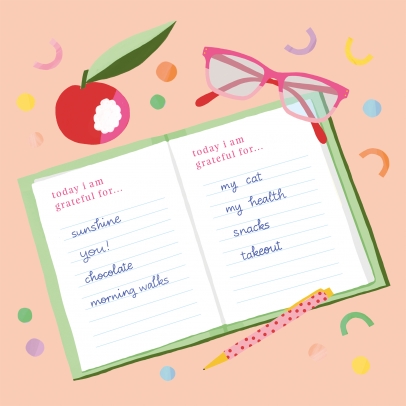
Nurture your community
They say absence makes the heart grow fonder and now even the most fervent introverts among us have come to appreciate the value of human connection during these trying times. Whether it’s reuniting with a loved one after self-isolation or just catching a silent smile from a stranger on the street, we’re re-learning what it means to find joy in the people around us.
This crisis has seen our communities come together like never before. We’ve rallied around local businesses, helped out the elderly and vulnerable and devised some pretty ingenious ways to stay in touch – from driveway get-togethers to digital happy hours.
Post-crisis, look for ways to keep that renewed spirit of community alive. Keep up with the online catch-ups and look for new ways to connect with your community, such as volunteering. And why not organise a block party to get to know those neighbours you’ve been meaning to introduce yourself to for all these years?
……….
Be grateful
Whenever life gets stripped back to the basics, even the smallest things start to feel like precious gifts. Sunshine on your face after days indoors, ordering your regular at the local cafe or watching your kids play with their friends in the park. When life gets back to normal, and we get to experience these moments for the first time all over again, there will be a tidal wave of gratitude. What if you could feel that way all the time?
Start cultivating gratitude today. Instead of focusing on the things you’ve had to do without, remember all the little sparks that have brightened the corners of these dark days. Start a gratitude journal, or get into the habit of sharing one thing you’re grateful for every evening with a family member or friend. It can even create space for big-scale gratitude, such as appreciation for being employed, having fresh food, living in a safe house or being thankful to our First Nations people, whose land we live on.
We can all emerge from this crisis emotionally stronger. Practising gratitude will help you see the bigger picture and stop sweating the small stuff. Self-compassion is key to processing your emotions in a healthy way, helping you remain calm in the face of future calamity.


